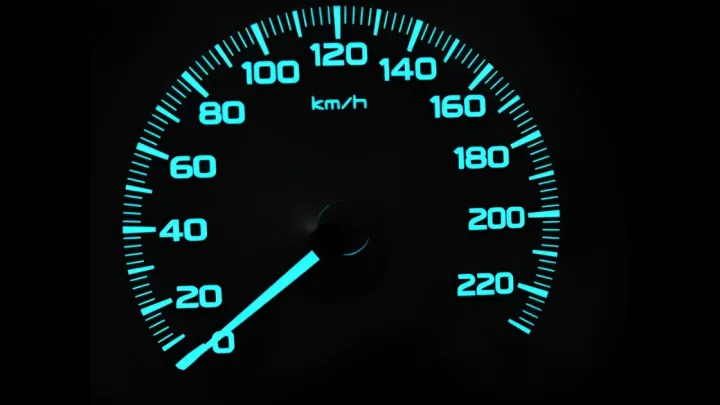
A car odometer may stop working due to a faulty gear or a disrupted electrical connection. Mechanical failure or a malfunctioning instrument cluster are common culprits.
A car's odometer plays a crucial role in tracking its mileage, essential for maintenance schedules and determining its value. When this component fails, drivers lose track of important vehicle usage data.
Odometer issues can stem from simple wear and tear, especially in older models with mechanical odometers.
Modern vehicles, equipped with digital odometers, can experience failures due to electrical faults, such as a blown fuse or a problem with the vehicle's onboard computer system.
Ensuring your car's odometer is functioning correctly is important for accurate record-keeping and maintaining the integrity of the vehicle's history.
Regular vehicle check-ups can help identify potential problems early, preventing unexpected breakdowns of the odometer and other critical components.
Introduction To Car Odometer Functionality
An odometer tracks a car's mileage. It shows how far the vehicle has traveled. This feature helps owners manage maintenance schedules and determine car value.
But what happens when this essential component stops working? Let's explore.
Purpose Of An Car Odometer
The main goal of an odometer is to record distance. Car owners use this data for various reasons. It informs them about service needs and influences resale value. Accurate readings are crucial for legal and commercial purposes too.
Common Types Of Car Odometer
- Mechanical Odometer: Uses gears and numbers on a spindle.
- Electronic Odometer: Relies on a vehicle's computer system.
- Digital Odometer: Displays mileage with LCD or LED readouts.
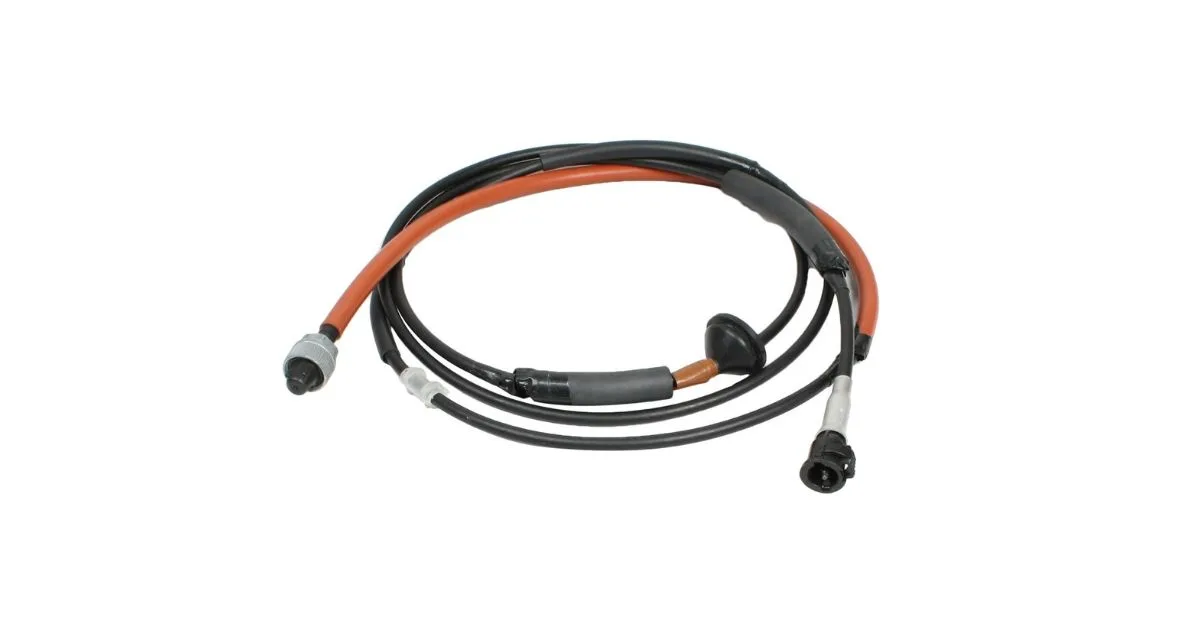 Mechanical Failure: Gears And Cables
Mechanical Failure: Gears And Cables
Mechanical Failure: Gears And Cables
Let's explore a common issue: Mechanical Failure: Gears and Cables in car odometers. This problem can stop your odometer from working right.
Wear And Tear Of Car Odometer Gears
Odometer gears are vital for tracking miles. Over time, these gears can wear out. This wear and tear can cause the odometer to stop working. Imagine using a toy non-stop.
Eventually, parts of the toy start to wear out. It's the same with odometer gears.
- Material Aging: Gears made of plastic may become brittle and break.
- Continuous Use: Over years of use, gears can simply wear down.
- Lack of Lubrication: Without proper grease, gears grind against each other, speeding up wear.
Cable Snapping And Disconnection
The cable connects the odometer to the car's wheels. It's like a messenger running between two friends. If this messenger trips or stops, the message doesn't get through.
Similarly, if the cable snaps or disconnects, the odometer won't work.
| Problem | Effect |
|---|---|
| Snapped Cable | No connection, odometer stops. |
| Disconnected Cable | Lost message, odometer fails. |
Regular check-ups can prevent these issues. Like visiting a doctor keeps you healthy, checking your car keeps it running smoothly.
Electronic Issues: Circuits And Sensors
Electronic issues often lead to odometer failure. Modern cars use complex circuits and sensors.
These components track and display your mileage. When they malfunction, odometer readings can freeze or show errors.
Faulty Wiring And Electrical Shorts
Wiring problems are common culprits. Cars vibrate and age, which can loosen wires. Corrosion also damages them over time. This leads to electrical shorts. Shorts may cause odometer screens to go blank or flicker.
- Loose connections disrupt power flow.
- Corrosion interrupts circuits.
- Shorts may reset or freeze odometers.
Malfunctioning Speed Sensors
The speed sensor links to the odometer. It measures how fast the car moves. A faulty sensor gives wrong speed readings. This affects the odometer's accuracy. Sometimes, the odometer stops working altogether.
- Sensors send data to the odometer.
- Bad sensors give false readings.
- Odometers rely on accurate data.
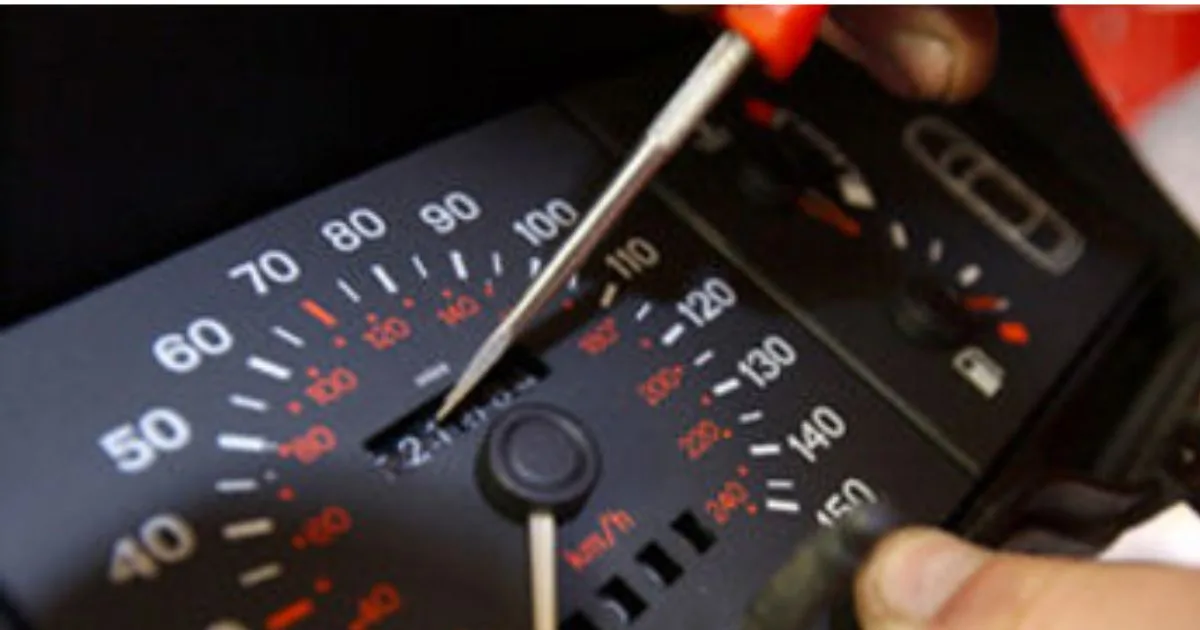 Human Factors: Tampering And Fraud
Human Factors: Tampering And Fraud
Environmental Impact: Corrosion And Dirt
Environmental Impact: Corrosion and Dirt can greatly affect a car's odometer. These elements contribute to the wear and tear that may lead to its malfunction.
Understanding how moisture, rust, and dirt can impact your odometer is crucial for maintenance and longevity.
Effects Of Moisture And Rust
Moisture is a car's enemy. It can seep into the odometer, causing rust. Rust eats away at metal parts, leading to failure. Below are the impacts:
- Moisture leads to oxidation and rust.
- Rust damages internal gears and electrical circuits.
- Display may fade or stop working entirely.
Regular checks help prevent moisture build-up.
Dirt Accumulation And Cleaning
Dirt and debris can clog the odometer mechanism. This can cause inaccurate readings or a complete stop. Here's what to consider:
- Clean the odometer regularly to prevent dirt build-up.
- Use appropriate tools and solutions for cleaning.
- Avoid harsh chemicals that could damage the odometer.
Proper cleaning maintains clear readings and extends the odometer's life.
Human Factors: Tampering And Fraud
Car odometers track the total distance a vehicle has traveled. Sometimes, these devices stop working. Human actions can be the cause. Odometer tampering and fraud are illegal practices.
They mislead buyers about a car's true mileage. Let's explore how these issues affect odometers.
Illegal Odometer Rollback
Odometer rollback is a deceitful act. It makes a car seem less used. Lower mileage can trick buyers into paying more. This practice is against the law. Car sellers must not change odometer readings.
Buyers must check a car's history before purchase.
Impact Of Accidental Damage
Accidents can damage a car's odometer. Crashes or electrical issues may cause it to stop. Car owners should fix odometers right away. A broken odometer can lead to future sale problems. Regular maintenance helps avoid accidental damage.
Age And Usage: Lifespan Of An Car Odometer
Odometers measure how far a car has traveled. Like any car part, they wear out over time. Let's explore the lifespan of an odometer.
Expected Durability
A car's odometer is built to last. It's designed to work as long as the car does. But sometimes, things go wrong.
- Electronic odometers can fail due to wiring issues.
- Mechanical odometers might break with worn gears or cables.
Mileage And Longevity Correlation
High mileage can mean more wear for odometers. But proper car care keeps them accurate longer.
| Mileage | Odometer Impact |
|---|---|
| 0-50,000 miles | Minimal wear |
| 50,000-100,000 miles | Moderate wear |
| 100,000+ miles | Possible failure |
Software Glitches: Digital Malfunctions
In modern cars, odometers have gone digital. But, like all tech, they can glitch. Software glitches often cause these digital malfunctions. Let's explore how.
Buggy Updates And Firmware Issues
Car systems get updates, just like phones.
Sometimes, these updates have bugs. Bugs can mess up how the odometer works. Here are common problems:
- Incorrect Mileage: Numbers may jump or freeze.
- Display Issues: The screen might go blank or show errors.
Manufacturers release fixes, but it takes time. During this, odometer readings can be wrong.
Reset And Calibration Errors
Calibration keeps the odometer accurate. A reset can mess this up. Here’s what might happen:
- The odometer starts counting from zero.
- Readings become less accurate.
Technicians can recalibrate the system. Yet, until fixed, the odometer won't track miles right.
Battery Problems: Power Supply Interruptions
Battery problems often lead to car odometer failures. A car's odometer depends on a steady flow of power. Without it, the odometer can't record miles driven.
Weak Or Dead Battery Effects
A weak or dead battery is a common culprit behind an odometer stopping. Here's why:
- Power loss resets some digital odometers.
- Without power, mechanical odometers can't turn.
Alternator Issues Leading To Car Odometer Failure
The alternator charges the battery. When it fails:
- Battery drains quickly.
- Odometer stops working.
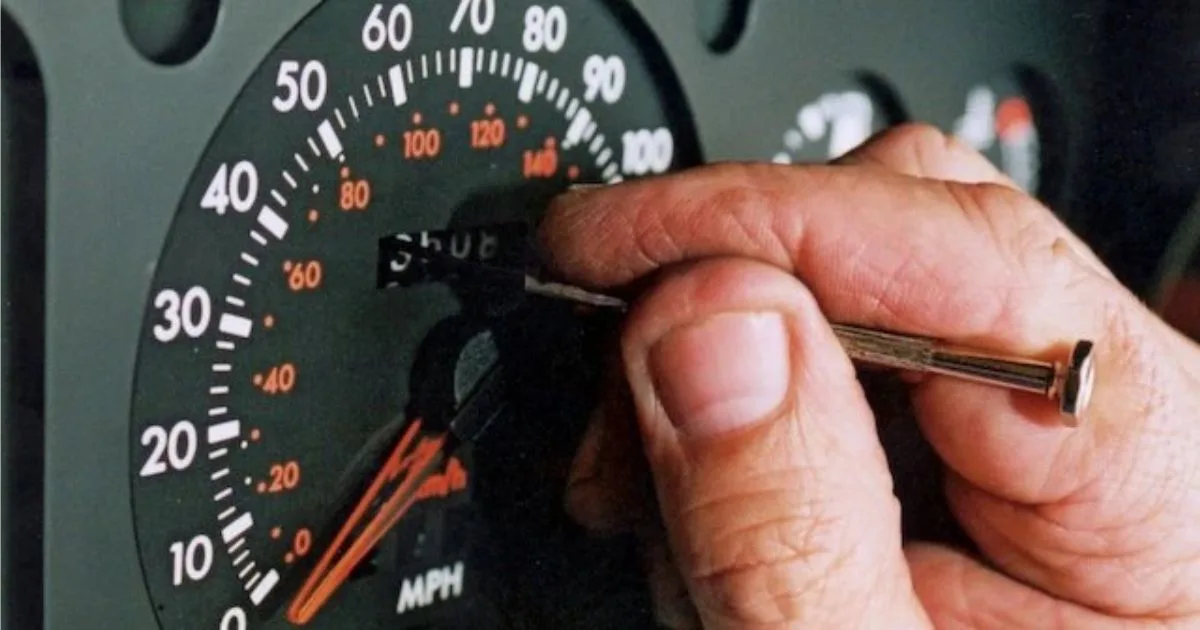 Troubleshooting And Repair
Troubleshooting And Repair
Troubleshooting And Repair
Is your car odometer not working? It's a common issue. The odometer tracks mileage.
When it fails, it's often due to electrical problems or a broken gear. Let's troubleshoot and repair it.
Diagnostic Steps
First, check the basics:
- Inspect the dashboard for warning lights.
- Review the fuse box for blown fuses.
- Test the vehicle’s battery.
Next, delve deeper:
- Access the odometer's wiring.
- Use a multimeter to test connectivity.
- Examine gears for physical damage.
Record findings. Note any discrepancies.
When To Seek Professional Help
Some issues need expert attention:
- Complex electrical problems may need diagnostics tools.
- Internal mechanical damage requires specialized skills.
- Calibration must be precise for accurate readings.
Don't hesitate to contact a mechanic. Accurate mileage is crucial for maintenance and value.
Preventative Measures And Maintenance Tips
Maintaining a car's odometer is crucial for accurate mileage tracking. The odometer keeps track of your car's total distance traveled.
A broken odometer can lead to various issues, including resale problems and maintenance schedule confusion.
Let's explore some preventative measures and maintenance tips to keep your odometer running smoothly.
Regular Vehicle Check-ups
Consistent check-ups ensure your car's health, including the odometer. Here are steps for regular maintenance:
- Annual inspections at a trusted mechanic.
- Checking for error codes with a diagnostic tool.
- Maintenance of electrical systems, crucial for digital odometers.
Protecting Against Environmental Damage
Environmental factors can harm your car's odometer. Here's how to protect it:
- Park in shaded areas or use car covers to prevent sun damage.
- Keep your car clean from dirt and dust that can affect electronic components.
- Apply protective coatings on the dashboard to prevent UV ray damage.
These simple steps can significantly extend the life of your car's odometer, ensuring accurate tracking of your vehicle's mileage and enhancing its longevity.
Legal Implications Of Car Odometer Tampering
Understanding the legal implications of odometer tampering is crucial. This act is illegal and unethical. It misleads buyers about a vehicle's true mileage. Let's explore the laws and protections against this fraud.
Federal Laws And Regulations
The United States takes odometer fraud seriously.
Federal laws prohibit this deceitful practice. The Truth in Mileage Act (TIMA) helps enforce these rules. Violators face severe penalties.
- Criminal fines can reach up to $10,000.
- Imprisonment may last for years for offenders.
- Class action lawsuits can arise from multiple victims.
Consumer Rights And Protections
Buyers have rights to protect them from odometer fraud. Laws ensure sellers provide correct mileage. If tampering occurs, buyers can seek justice.
- Buyers can receive compensation for damages.
- State laws may offer additional protections.
- Legal actions can lead to full refunds for buyers.
Always check a car's history before purchase. This step can prevent falling victim to odometer fraud.
Ensuring Car Odometer Integrity
Odometer accuracy is vital for both legal and personal reasons. A reliable odometer ensures fair transactions and proper vehicle maintenance schedules.
Summary Of Causes
Several issues can halt an odometer's function:
- Electrical faults: Wires and fuses may fail.
- Internal damage: Gears or other components can break.
- Digital malfunctions: Software glitches can occur.
The Importance Of A Functional Car Odometer
A working odometer is essential. It tracks mileage for:
- Resale value: Accurate history maintains value.
- Maintenance: Timely servicing relies on mileage.
- Legal compliance: Tampering is against the law.
Trust in a vehicle's history starts with an intact odometer. Regular checks and prompt repairs keep this trust intact.
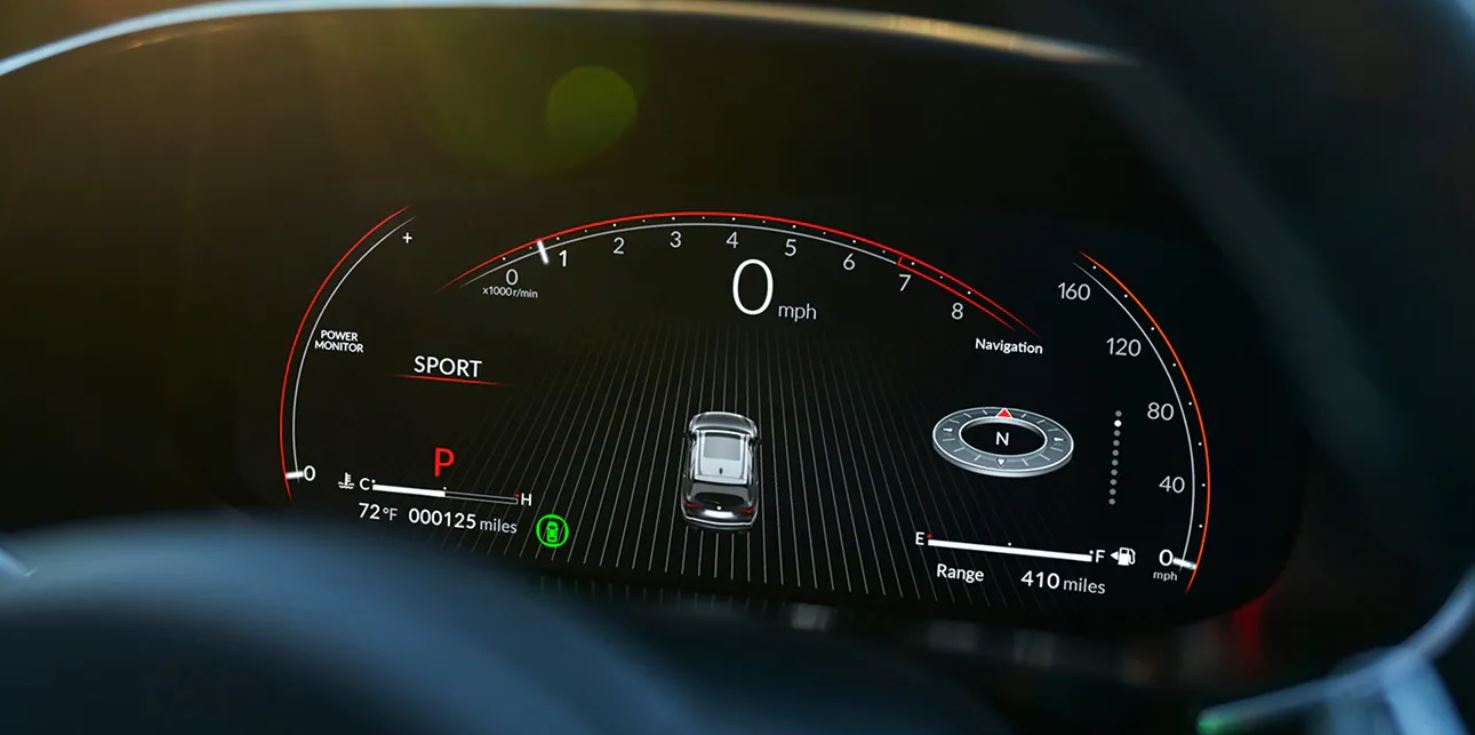
Credit: theproctordealerships.com
Related Post
What Causes a Car Speedometer to Stop Working: Key Reasons
How to Use a Digital Car Manometer: Expert Tips
How Does a Car Ammeter Work: Essential Insights
Why Does My Car Say ‘Tire Pressure Gauge Problem’? Pro Tips
Step-By-Step: Voltmeter Mastery for Car Battery Checks
Conclusion
Understanding the reasons behind an odometer's failure is crucial for timely interventions and vehicle maintenance.
Whether it's due to electrical issues, mechanical wear, or simply a disconnected cable, keeping an eye on this component ensures accurate mileage tracking.
Regular check-ups can prevent potential malfunctions and keep your car's odometer running smoothly.
Disclosure
Some links may be affiliate links. That means we may earn a small commission at no extra cost to you.